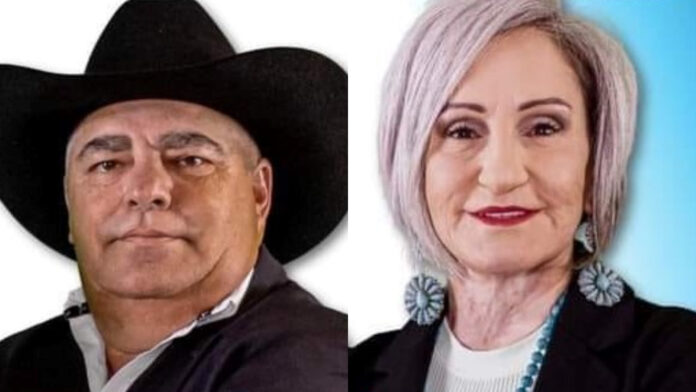Two Edcouch political candidates will see their names back on the November ballot after a judge granted their request for an injunction Friday morning.
Rodolfo “Rudy” Rodriguez and Rosa M. “Rosie” Schmalzried filed suit against Edcouch late last month after the city deemed them ineligible to run for alderman due to their alleged indebtedness to the city.
The pair declared their candidacy as part of a slate with mayoral candidate Rina Castillo. Together, the trio hope to unseat the incumbents, Mayor Virginio “Virgil” Gonzalez, Place 3 Alderman John Chapa and Place 4 Alderman Robert Gutierrez.
Rodriguez and Schmalzried submitted their candidate applications to the city on Aug. 11, and later learned what their place on the ballot would be during an Aug. 17 drawing. However, just six days later — on Aug. 23 — the pair received letters from the city claiming they were ineligible to run and would not be placed on the ballot after all.
On Aug. 26, they filed for — and were later granted — a temporary restraining order to stop the city from removing them from the ballot.
Edcouch officials allege both Rodriguez and Schmalzried have outstanding fines from traffic citations — including warrants for failures to appear — that make them indebted to the city in violation of the city charter. Edcouch further alleges that Schmalzried is also indebted to the city via delinquent property taxes.
But Rodriguez and Schmalzried roundly deny those allegations. And in court Friday morning, their attorney, Javier Peña, argued that even if the allegations were true, owing the city money would not be a legally valid reason to strike his clients’ names from the ballot.
After listening to more than an hour of arguments from Peña and Edcouch City Attorney Orlando “O.J.” Jimenez, the judge ruled in favor of the candidates.
“Out of an abundance of caution, and for the purposes of the parties, I am going to convert the TRO into a temporary injunction,” said visiting Judge Rogelio “Roy” Valdez.
In the end, Peña’s arguments that his clients would suffer irreparable harm if they were kept off the ballot but later found to be eligible after all found purchase with the judge.
“The argument that was advanced by Mr. Peña is quite clear. I think that any time there is an ambiguity, the courts are supposed to err on the side of allowing the parties — at this time, at this juncture — to proceed,” Valdez said.
With the November election drawing ever closer, it was the timing of the proceeding that helped influence the judge’s decision to grant the injunction.
Under Texas law, elections must follow strict deadlines, including when the ballots are created, when early voting begins and the date of Election Day.
However, if a candidate’s name does not make it to the ballot by the statutory deadline and is subsequently not allowed to participate in running for office, there is little either they or the courts can do to change things after the votes are cast.
Valdez spoke to that when explaining his decision to grant the injunction.
“I am convinced that if I were to declare it at this juncture, and — on a preliminary matter — deem them ineligible, and later on I were to find that they were eligible, they would obviously never have an actual remedy at law,” Valdez said.
There is a remedy, however, if the opposite turns out to be true — if the candidates are allowed to run, but are later found to be ineligible for office. Should they win the election but be found to be ineligible after the fact, the judge can simply remove them from office.
Ultimately, Valdez enjoined Edcouch from removing Rodriguez’s and Schmalzried’s names from the ballot, from not submitting their names to the Hidalgo County Elections Department, which is responsible for administering the election, or from taking any action that would exclude them from the election.
Valdez’s decision, however, does not represent an opinion on the merits of the arguments from either side. It doesn’t represent his legal opinion on whether or not Rodriguez and Schmalzried are eligible to run for office.
Rather, Valdez stressed that granting the injunction merely protects their rights until such time as they and the city can make their arguments at trial.
Though the attorneys for both sides expressed their desire to do that before early voting begins, it remains unclear if it will happen. Court records show no date has yet been set.
Valdez — who began his comments by speaking of his extensive experience hearing elections cases during his tenure as chief judge of the 13th Court of Appeals — had one parting sentiment regarding the sanctity of the election process.
“I think that the ballot box — when we’re talking about rights for voting, when we’re talking about rights to run for office — they’re fundamental. They’re very fundamental under the Texas constitution and also the federal constitution,” Valdez said.
“Through an issue that is not clear at this point, that’s ambiguous, I feel that it would not serve justice in this area of politics,” he said.




